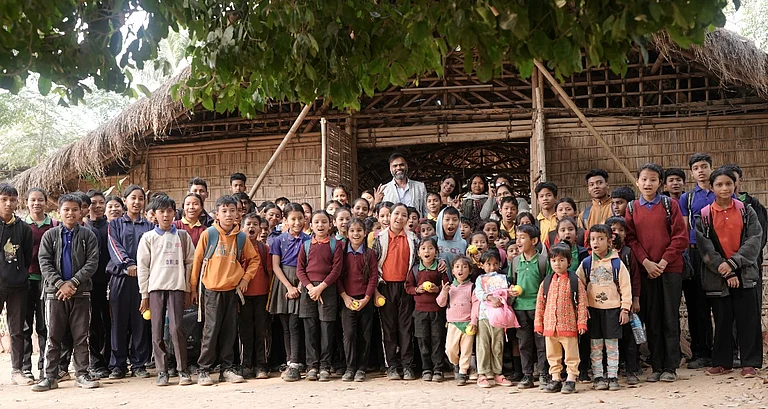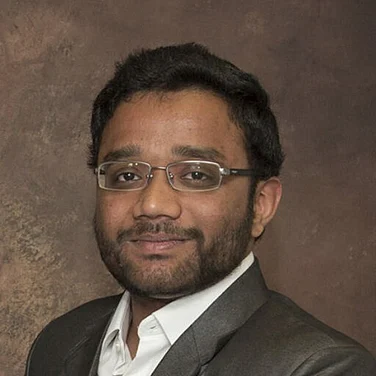Tanay Kothari, who recently raised $56 million for his AI startup Wispr Flow and has a track record of building and selling companies since college, will deliver a keynote on "How to raise $50M+ as an immigrant founder" at the Open Atlas Summit 2025, taking place August 15-16 in Milpitas, California.
The summit is organized by a team of high-skilled immigrants, including Nikin Tharan and Soundarya Balasubramani. It aims to brings together skilled immigrants seeking to build companies in America. Kothari's workshop is expected to provide practical insights from someone who has successfully navigated Silicon Valley fundraising as an immigrant entrepreneur.
From Teenage Prodigy to Silicon Valley CEO
Kothari's entrepreneurial journey began early. As a 16-year-old student at Delhi Public School RK Puram, he was already building apps and representing India at international programming competitions, including a Bronze Medal at the International Olympiad in Informatics (IOI) 2015 in Kazakhstan and a Silver Medal at the Asia-Pacific Informatics Olympiad (APIO) 2015. At Stanford University, where he studied Computer Science with an AI specialization and researched with Andrew Ng, Kothari co-founded FeatherX, a platform for personalizing e-commerce experiences. The company was acquired by Cerebra Technologies in 2020, where Kothari became Head of Product and later Head of AI & Engineering
Building Wispr Flow to $56M in Funding
Kothari's current venture, Wispr Flow, exemplifies how immigrant founders can build category-defining companies. The AI-powered voice dictation app has grown 50% month-over-month and achieved a 19% subscription conversion rate, with 60% month-over-month revenue growth.
In June 2025, Wispr Flow raised a $30 million Series A led by Menlo Ventures, bringing total funding to $56 million. The round included participation from Pinterest founder Evan Sharp, Carta CEO Henry Ward, and others, reflecting the caliber of investors the company has generated.
Notably, Kothari initially didn't want to raise the Series A, as the company was approaching profitability. However, he recognized the strategic value of capital in competing with big tech companies that benefit from distribution advantages—a thoughtful approach to fundraising that goes beyond immediate financial need.
The Power of Product-Market Fit
What makes Kothari's fundraising experience particularly relevant for summit attendees is how he leveraged product adoption by investors themselves. As he noted, "every single tier one venture fund in the valley uses Wispr Flow for their emails, memos, documents, and more." This organic adoption created inbound investor interest rather than requiring traditional pitching.
Wispr Flow supports 104 languages, with 40% of dictations in English and 60% in other languages, including Spanish, French, German, Dutch, Hindi, and Mandarin. This global approach demonstrates how immigrant founders can build products that serve diverse markets from day one.
The app's reach spans globally: 40% of users in the U.S., 30% in Europe, and 30% elsewhere, with over 30% coming from non-technical backgrounds—showing the universal appeal of well-designed products.
Fundraising Strategy for Immigrant Founders
Kothari's approach to fundraising reflects deep understanding of Silicon Valley dynamics. Rather than focusing solely on financial metrics, he prioritized product stickiness and user engagement. The fact that VCs became daily users created natural advocacy for his company.
His previous exit with FeatherX provides credibility that many first-time founders lack. Having successfully built and sold a company straight out of Stanford established him as a proven operator, making subsequent fundraising easier.
The timing of his Series A also reflects strategic thinking—raising capital not out of necessity but to accelerate growth and address competitive challenges. This position of strength is exactly what immigrant founders need to achieve to succeed in Silicon Valley.
Broader Entrepreneurial Vision
Beyond immediate success, Kothari represents the ambitious mindset that many immigrant founders bring to Silicon Valley. His childhood dream of building "Jarvis" (Iron Man's AI assistant) inspired him to create voice-first AI interfaces, showing how immigrant founders often address fundamental technology challenges.
His research background at Stanford's AI lab and work with Andrew Ng provided the technical foundation for building breakthrough products. This combination of academic rigor and commercial execution exemplifies how skilled immigrants can leverage educational opportunities to build world-class companies.
At the Open Atlas Summit, attendees can expect practical insights into navigating venture capital processes, building investor relationships, and positioning companies for maximum valuation. Kothari's experience raising from top-tier firms like Menlo Ventures, NEA, and 8VC offers practical insights for founders at various stages.
For skilled immigrants building companies while managing visa uncertainties, Kothari serves as an example that strong execution can help overcome systemic barriers and create opportunities for building lasting enterprises in America.






















